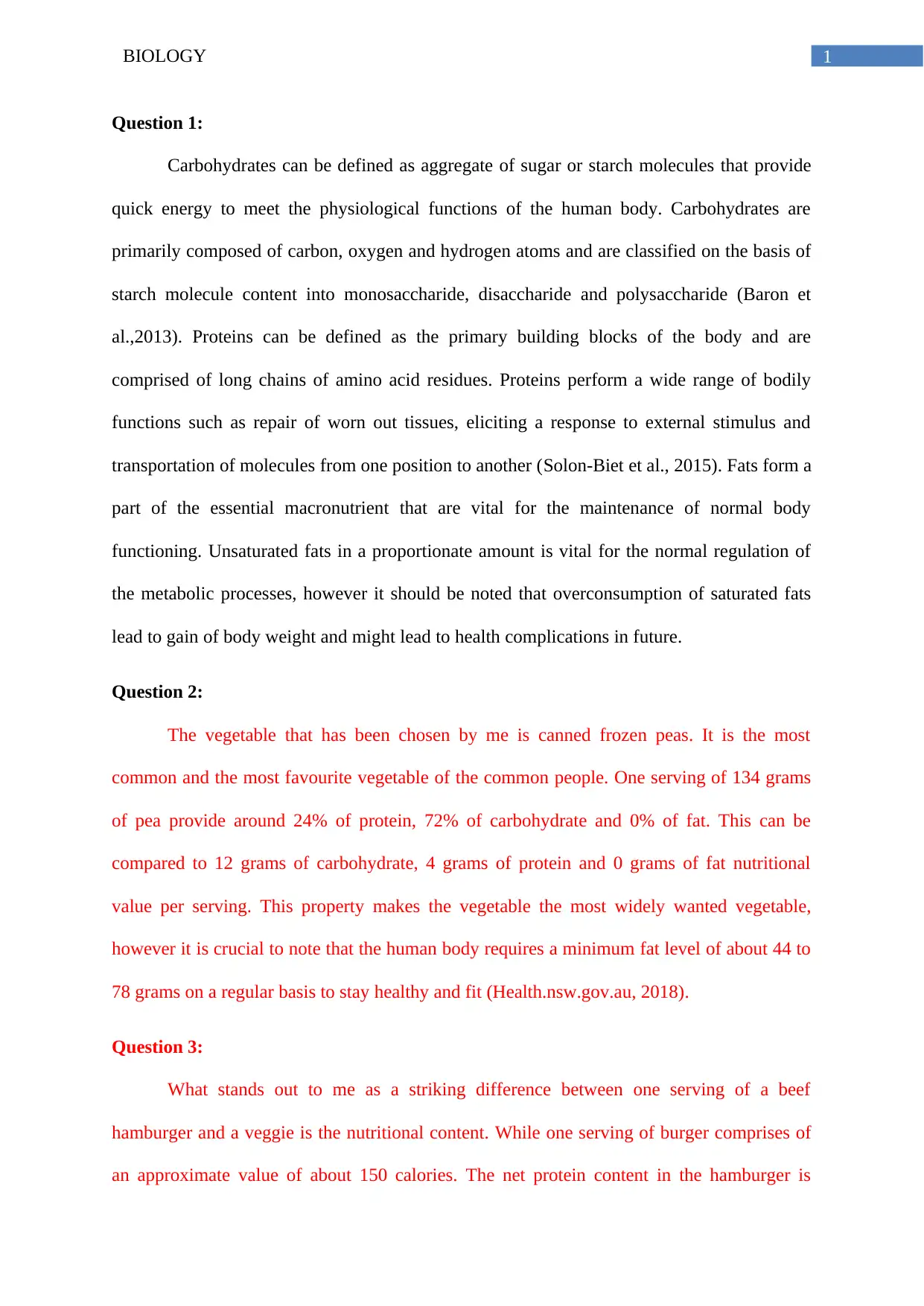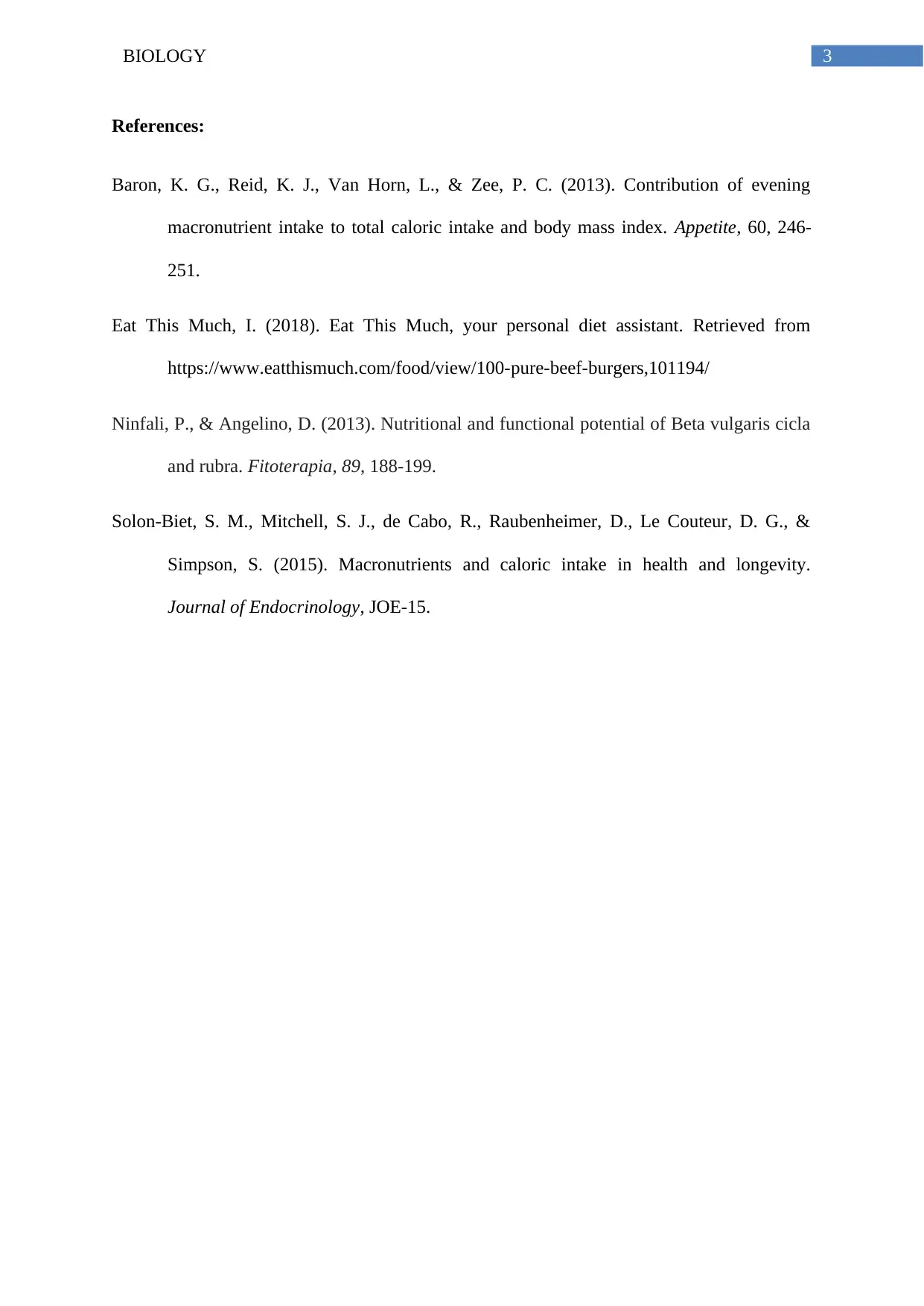Biology Homework: Analyzing Macronutrients and Food Comparisons
VerifiedAdded on 2023/06/05
|4
|599
|366
Homework Assignment
AI Summary
This Biology assignment explores the roles of macronutrients (carbohydrates, fats, and proteins) and their impact on human health. The assignment begins by defining and describing the functions of carbohydrates, fats, and proteins. Next, the assignment focuses on the nutritional content of a chosen vegetable, canned frozen peas, comparing its macronutrient profile to recommended daily intakes. Finally, it compares the nutritional content of a serving of peas to a serving of a beef hamburger, highlighting the differences in calorie count, protein, and fat content, and emphasizing the health benefits of the chosen vegetable over the hamburger. The assignment utilizes references to support its claims and provides a comprehensive overview of the topic.
1 out of 4







![[object Object]](/_next/static/media/star-bottom.7253800d.svg)